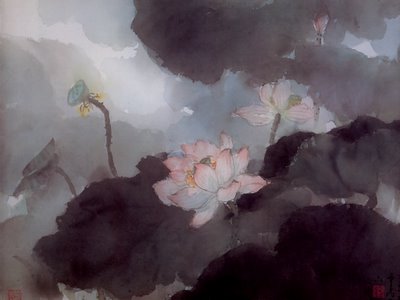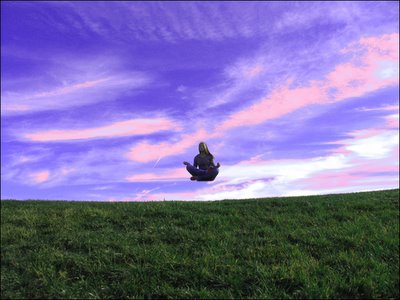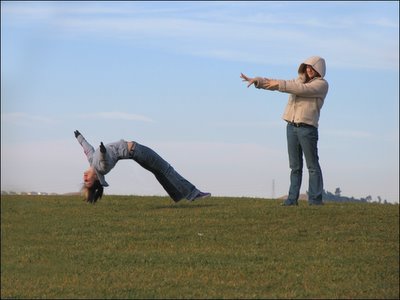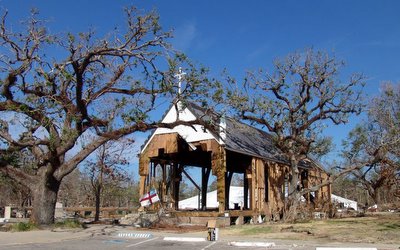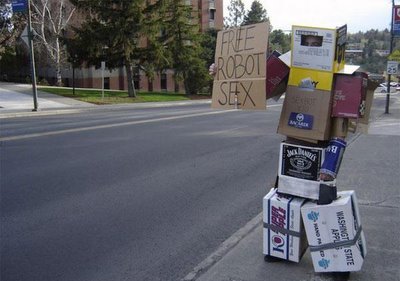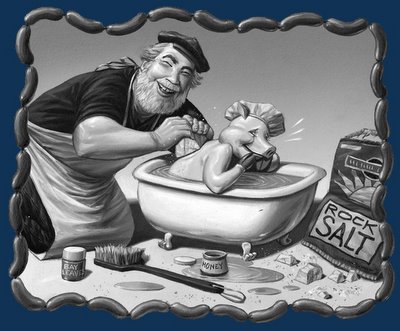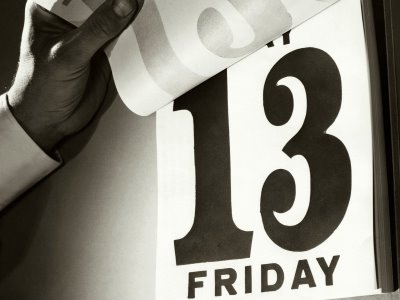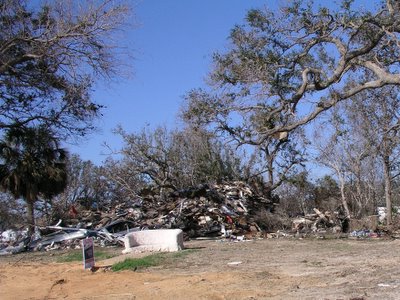 The long version . . .
The long version . . .Daibai-zan (“Great Plum”) Mountain is in the city of Keigen-fu. Gosho-ji temple was established on this mountain, and its founder was Zen Master Hojo (Daibai Hojo [752-839], successor of Master Baso Do-itsu). Zen Master Hojo was a man of the Joyo district (in present-day Hupei province in east China).
In former days, when visiting Baso’s order, he asked, “What is Buddha?”
Baso said, “The mind here and now is Buddha.”
Hearing these words, Hojo realized the great state of realization under their influence. Consequently, he climbed to the summit of Daibai-zan (“Great Plum”) Mountain, away from human society, and lived in solitude in a thatched hut, eating pine nuts and wearing clothes made from lotus leaves: there was a small pond on the mountain, and many lotuses grew in the pond. He sat in Zazen and pursued the truth for more than thirty years. He saw and heard absolutely nothing of human affairs, and he lost track of the passing years, only seeing the mountains all around go from green to yellow. One pities to imagine what the winds and frosts were like.
In Zazen, the Master placed an eight-inch iron tower on his head, as if he were wearing a crown. By endeavoring to keep the tower from dropping to the ground, he did not fall asleep. The tower remains in the temple today: it is listed in the records of the temple storehouse. This is how he pursued the truth until his death, never tiring of the effort.
He had been living like this for years and months when a monk from Enkan’s order (Zen Master Enkan Sai-an [?-842], also a successor of Master Baso Do-itsu) happened to come onto the mountain looking for a staff. The monk had lost his way on the mountain and unexpectedly came upon the site of the Master’s hut. When, to the monk’s surprise, he saw the Master, he asked, “Master, how long have you been living on this mountain?”
The Master said, “I have only seen the mountains all around go from green to yellow.”
The monk asked further, “What is the way down from this mountain?”
The Master said, “Follow the stream down.”
The monk was struck. When he returned and told Enkan what had happened, Enkan said, “In former days when I was in Kozei (Kozei is where Master Baso had his order) I once met a certain monk, and I do not know what happened to him after that. This couldn’t be the same monk, could it?”
Eventually Master Enkan sent the monk to extend an invitation to Master Baso, but the Master would not leave the mountain. He replied with a verse:
“A withered tree, broken and abandoned, in a cold forest,
However many times it meets spring, it does not change its mind.
Passing woodsmen do not even look back.
Why should people from Ei be keen to search it out?”
In the end, he did not go. Later, when he decided to move even deeper into the mountains, he made the following verse:
“I shall never outwear the lotus leaves in the pond,
The flowers of a few pines are more than a meal.
Now my abode has been discovered by people of the world,
I shall move my shack deeper into seclusion.”
Finally, he moved his hut further into the mountains.
Once Baso sent a monk especially to ask Daibai Hojo, “Master, when you visited Baso in former days, what truth did you attain and then come to live on this mountain?”
The Master said, “Baso told me, ‘The mind here and now is Buddha.’ Then I came to live on this mountain.”
The monk said, “These days, his buddha-dharma is different.”
The Master said, “How is it different?”
The monk said, “Baso says ‘It is neither the mind nor Buddha.’”
The Master said, “That old man! If he is out to disturb others, I will have no sympathy for him. Never mind about ‘neither the mind nor Buddha.”
The monk reported these words to Baso. Baso said “The fruit of the Plum is matured.”
- from Dogen’s Gyoji, Shobogenzo Fascicle 30 (translated by Gudo Nishijima and Chodo Cross)
The short version . . .
Daibai asked Baso: “What is Buddha?”
Baso said, “This mind is Buddha.”
A monk asked Baso: “What is Buddha?”
Baso said: “This mind is not Buddha.”
- The Gateless Gate, Cases 30 and 33 (translated by Nyogen Senzaki and Paul Reps)

